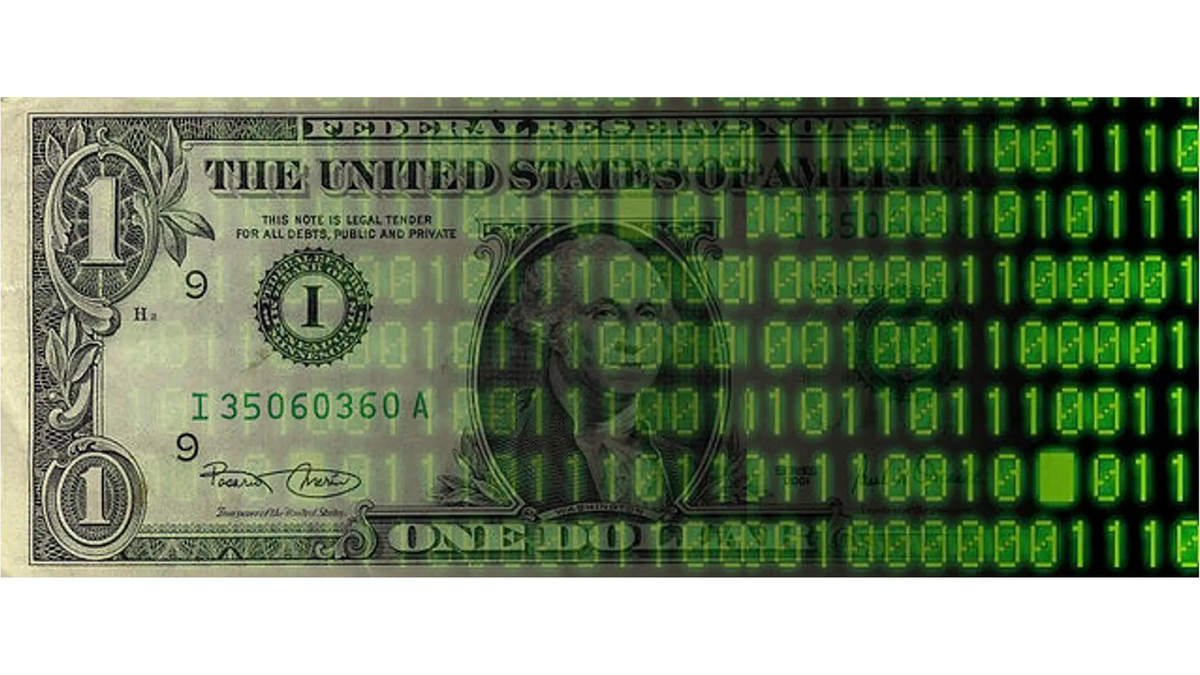These classical computers operate with bits of individual value, after performing any operation using logic gates, their value will always be zero (0) or one (1). When processing a number n of bits with a classical computer, it works with only one of the two possible sequences since its information processing system is sequential and not parallel.
That is, after processing an operation with a value of zero (0), information processing based on an operation with a value of one (1) will occur.
QUANTUM COMPUTING: The unit of measurement of a quantum computer is the qubit. The qubit is characterized by having two possible values superimposed at the same instant. That is, a qubit has the value zero (0) and one (1) at the same time, at the same time.
Operations with quantum logic gates are also different. When operating with qubits that have superimposed values zero (0) and one (1) at a time, the result of their operations will be other basic units of quantum storage that will hold superimposed values. Finally, their computational data processing is parallel and not sequential or successive.
Quantum computers work with parallel processing, performing in parallel all two (2 raised to the nth power) possible operations.
Therefore, its parallel processing is equivalent to the parallel work of thousands of classical and traditional computers.
The parallel data processing of quantum computers gives them exponentially greater processing capacity than any classical or conventional supercomputer built to date.
What is quantum money?
He quantum money It is a type of currency that is impossible to counterfeit, since trying to read its serial number made up of photonic or quantum subparticles would immediately alter it, and copying it would also be materially impossible due to the theorem of non-cloning of quantum states.
The first proposal for a scheme of quantum money It was carried out by the American-Israeli physicist, Stephen Wiesner around 1970, although this pioneering and revolutionary article remained unpublished until 1983.
He Stephen Wiesner’s quantum money scheme It was first published in 1983, and thirty years later, in 2013, a formal security proof was carried out using semidefinite programming techniques.
This has two practical consequences: first, due to the non-cloning theorem of quantum states, quantum money is unforgeable; and secondly, it has a clear impact on electronic communications, since if someone wants to read a quantum-encrypted message, the message or information would be immediately altered, preventing access to the information and revealing the attempt at intrusion or illegitimate access.
So far, the implementation of quantum money is not practical with current technology, as banknotes require storing quantum states in a quantum memory. Quantum memories can currently store quantum states only for a very short period of time.
However, the United States of America and the People’s Republic of China are locked in a race for quantum supremacy, to see which superpower can achieve an operational quantum computing system.
What is the impact on crypto mining and cybersecurity of communications?
Quantum supremacy will lead to the extinction of conventional encryption systems based on symmetric and asymmetric public key cryptography using the RSA algorithm.
Once this period is over, quantum cryptography will become the cybersecurity method par excellence for protecting electronic communications and economic transactions through quantum money.
A quantum computer, thanks to its parallel data processing system of superimposed value units (Qubits) and using Shor’s algorithm, will make it possible to find prime factors of any number so quickly that it would allow the interception and decryption of encrypted communications carried out through so-called anonymity or encryption networks.
This is not merely theoretical speculation, but has already been demonstrated on more than one occasion since 2019.
A clear example of this was that “in October 2019, Sycamore, Google’s quantum processor, completed a complex calculation operation in 200 seconds. If the same operation had been tested on a traditional digital computer, “the execution would have taken about 10,000 years.”
Likewise, it is estimated that a quantum computer based on superimposed value information processing using a photonic microprocessor, such as the “Borealis” quantum computer, currently in the experimental stage, could solve logical operations in thirty-six (36) seconds, which would take an estimated nine thousand (9000) years to solve by the most powerful classical or conventional supercomputer, according to the results published by the Canadian company Xanadu and the National Institute of Standards and Technology of the United States of America.
The impact this will have on the cryptoeconomy or cryptocurrency-based economy (Bitcoin, Ethereum, Bytecoin, Dash, Dogecoin, ICoin, Golem, Hshare, Litecoin, Ripple, Siacoin, Stratis, Theter, Waves, Zcashamong others), cryptocurrencies will depreciate, ceasing to be safe havens of value; since their cybersecurity system based on encryption blocks (Blockchain) supported by symmetric and asymmetric public key cryptography using the RSA algorithm; will be obsolete and vulnerable to quantum computing systems.
This will be the moment when cryptocurrencies or crypto-values will be replaced in the society of the fourth industrial revolution (4.0) by quantum money; which will use quantum encryption systems based on quantum hardware (Photonic microprocessors and photonic units such as Qubits) and quantum software (Shor’s algorithm and future in this field).
Quantum money will then emerge as a new value system that will replace cryptocurrencies, and it can also be seen today as a possible consequence of cryptocurrencies being in a crisis, stagnant in their market value, and failing to exponentially increase their stock market value.
The spectre of the advent of a new encryption technology such as quantum technology is in some ways overshadowing the increase in the value of cryptocurrencies, which are no longer perceived by large technology companies. (Alphabet –Google-, Amazon, Meta, Microsoft, Apple, IBM, Baidú, Alibaba, Tencent, Xiaomi, Huawei, Oppo, OpenIA), as a stable and enduring technology for the 21st century economy.
On the contrary, big tech companies already consider cryptocurrencies based on symmetric and asymmetric public key cryptography using RSA algorithmhave reached their maximum level of performance and have begun a gradual decline until the arrival of replacement technology, quantum encryption and with it, quantum money.
Professor of Computer Crime, Doctor of Criminal Law, Specialist in Criminal Law and Lawyer with Diploma of Honor from the University of Buenos Aires (UBA).
Source: Ambito
David William is a talented author who has made a name for himself in the world of writing. He is a professional author who writes on a wide range of topics, from general interest to opinion news. David is currently working as a writer at 24 hours worlds where he brings his unique perspective and in-depth research to his articles, making them both informative and engaging.




